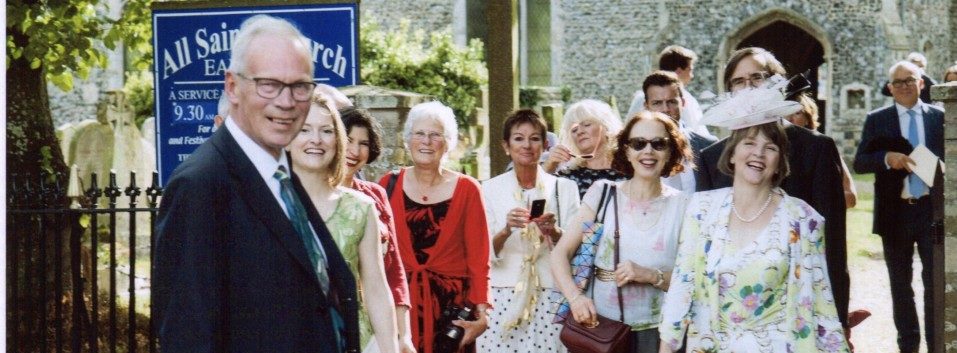It really is great having Elle here. We’ve been to the cinema again tonight, with another school friend of hers, and I’m not going to let this go again after she leaves. I’ve been far too solitary, not going to concerts, theatre, cinema, because I’d be going on my own. The Sage has never enjoyed it, though he’s patient about music if it sounds pleasant. I’m not meaning to be rude, he’s quite close to tone deaf and doesn’t feel music in the way he does tangible things and it isn’t his fault.
I’ve also been busy rewriting and updating the induction pack for governors. This is quite dull – well, it was while I was just updating, though it was the easy part. I inherited a couple of letters, quite formal, welcoming new governors and saying a bit about what we do – but it isn’t me, it doesn’t give the right feel. So I’m going to write a new one tomorrow, which should be a lot more fun to do and will give a more inspiring introduction, I hope.
The Sage is going to visit friends in Manningtree, which is near Ipswich. He’s known them for many years, longer than he’s known me. They’re both in their 80s now, both have dementia and we sometimes get rather confused phone calls from the husband. It’s very sad, but the Sage is never one to turn his back on old friends. And he’s not as sharp as he was himself come to that, he’s seemed ageless all these years until recently and now he isn’t.
But there’s another thing entirely that I’ve been meaning to talk about, and it should be on my other blog really – and I’ll update that in a day or two – and that is … oh, I hate having to say this because it seems faddy and I can’t put up with that – but I’m still losing weight, very slowly (but I always do and that’s good and healthy) and yet I’m not dieting. I’m not overeating, but the key is bread. Sorry loves, I like bread and I haven’t cut it out, but I’ve cut wheat down to a minimum without being fanatical about it, and that’s what makes the difference.
Ever since my mother, desperate for a cure for an illness that the hospital couldn’t diagnose (my friend Sophie said to me, once cancer was finally diagnosed, that the digestive system is huge and a small tumour can’t always be found), slipped into the hands of alternative *medical* therapists, some of whom, whether well-meaning or not, were charlatans, I’ve had considerable reservations about alternative medicine. Yet I am a balanced Z and don’t dismiss them all equally. Similarly, although I have utmost respect for food intolerances, preferences, allergies, dislikes (you have only to mention it to me once and I will remember and respect it), I don’t want (and hope that medical necessity doesn’t make me have) to avoid any food. But modern wheat doesn’t really suit me. When I’ve eaten more than a slice of bread or a spoonful of pasta, I get a fat round tum, and when I avoid it I lose weight. Simples. At least the fat round tum doesn’t presage flatulence, that’d be a real bugger. But I often eat cheese for lunch, and at one time I’d have avoided it and simply gone for salad (I love salad, that’s no hardship, but not eating cheese is), but it isn’t necessary. Woo hoo. I’m sure it’s modern varieties of wheat and methods of breadmaking, by the way, and not all countries use them.
I’d have had more respect for her therapists, you know, if one of them had ever said, please go back to your doctor because something is plainly wrong that I can’t help with. But, although I saw in the faces of a couple of them that they’d have liked to say that, they never did. They just kept taking her money. Which made them all charlatans, though not as bad as those who spouted mumbo jumbo and didn’t give a….well, there we go. One has to forgive, though it’s a damn sight easier to forgive wrongs to oneself than wrongs to those we loved.
Rambling? Yes, sorry. This is why I blog, loves. I tell you what I’m thinking about.
And now I’m going to bed. Goodnight. Thank you.
